Anton Bakalov
Promptagator: Few-shot Dense Retrieval From 8 Examples
Sep 23, 2022

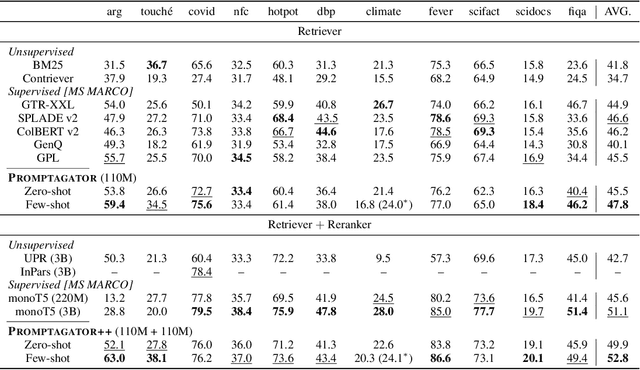

Abstract:Much recent research on information retrieval has focused on how to transfer from one task (typically with abundant supervised data) to various other tasks where supervision is limited, with the implicit assumption that it is possible to generalize from one task to all the rest. However, this overlooks the fact that there are many diverse and unique retrieval tasks, each targeting different search intents, queries, and search domains. In this paper, we suggest to work on Few-shot Dense Retrieval, a setting where each task comes with a short description and a few examples. To amplify the power of a few examples, we propose Prompt-base Query Generation for Retriever (Promptagator), which leverages large language models (LLM) as a few-shot query generator, and creates task-specific retrievers based on the generated data. Powered by LLM's generalization ability, Promptagator makes it possible to create task-specific end-to-end retrievers solely based on a few examples {without} using Natural Questions or MS MARCO to train %question generators or dual encoders. Surprisingly, LLM prompting with no more than 8 examples allows dual encoders to outperform heavily engineered models trained on MS MARCO like ColBERT v2 by more than 1.2 nDCG on average on 11 retrieval sets. Further training standard-size re-rankers using the same generated data yields another 5.0 point nDCG improvement. Our studies determine that query generation can be far more effective than previously observed, especially when a small amount of task-specific knowledge is given.
A Fast, Compact, Accurate Model for Language Identification of Codemixed Text
Oct 09, 2018


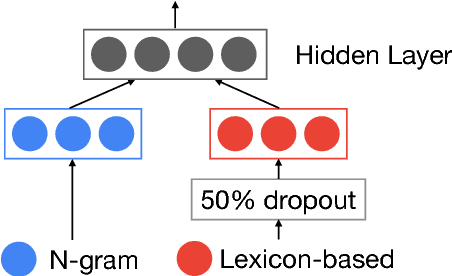
Abstract:We address fine-grained multilingual language identification: providing a language code for every token in a sentence, including codemixed text containing multiple languages. Such text is prevalent online, in documents, social media, and message boards. We show that a feed-forward network with a simple globally constrained decoder can accurately and rapidly label both codemixed and monolingual text in 100 languages and 100 language pairs. This model outperforms previously published multilingual approaches in terms of both accuracy and speed, yielding an 800x speed-up and a 19.5% averaged absolute gain on three codemixed datasets. It furthermore outperforms several benchmark systems on monolingual language identification.
Natural Language Processing with Small Feed-Forward Networks
Aug 01, 2017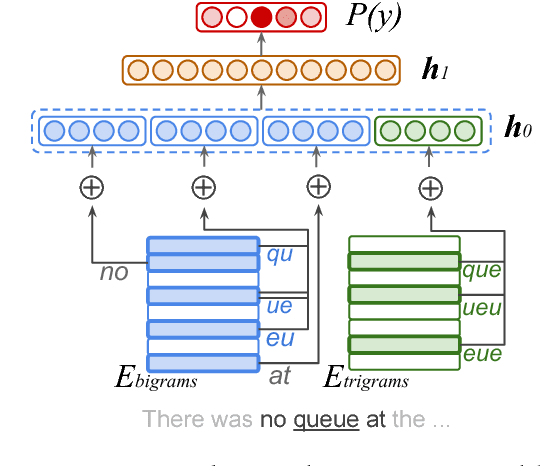
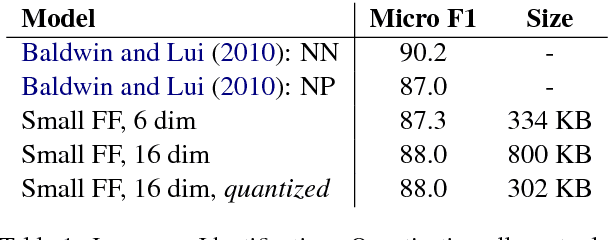
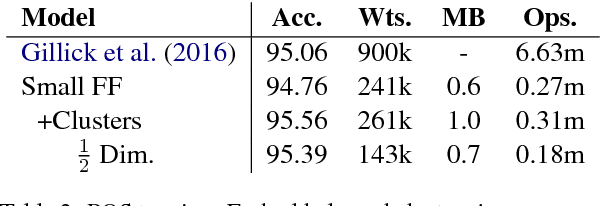

Abstract:We show that small and shallow feed-forward neural networks can achieve near state-of-the-art results on a range of unstructured and structured language processing tasks while being considerably cheaper in memory and computational requirements than deep recurrent models. Motivated by resource-constrained environments like mobile phones, we showcase simple techniques for obtaining such small neural network models, and investigate different tradeoffs when deciding how to allocate a small memory budget.
 Add to Chrome
Add to Chrome Add to Firefox
Add to Firefox Add to Edge
Add to Edge